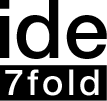henisch on "zettelalbum"
Zettelalbum. Book. Street diary, leaflet texts, letters from passersby.
Michael Schönemann Verlag. 222 pages. ISBN 3-921825-12-1. Kisslegg 1978
-------------------------------------------------------------------------------------------------------
Peter Henisch
on an extraordinary book by Christian Ide Hintze:
Time on small leaflets
Christian Ide Hintze presses his writings, on leaflets, straight into his readers’ hands. The book “Zettelalbum” is the product of these leaflets and other texts.
Probably, there are few people in Vienna – and in Salzburg, Munich and elsewhere too – who have never seen Christian Ide Hintze before. And certainly there are some who collect his thoughts, notes, aphorisms, poems – his texts are just as difficult to assign to existing schemata as he is himself – and possibly hang them on the wall at home.
Nonetheless, there will be many who are not familiar with his name. This is because the young man, who distributes small, hectographed leaflets on the street, in pubs and – to some extent as a living negation of the official art scene – at various cultural events, has, despite his unique consistency, indeed stubbornness, in this regard, something astonishingly unassuming about him.
1.2 million leaflets in four years now ... When Hintze recounted to me in Frankfurt, between Book Fair and Counter-Book Fair, that the young Swabian publisher Michael Schönemann had persuaded him to turn these leaflets into a book, I could not conceive of this book in my mind. Now that I have read it, several times, albeit never from beginning to end – as this is not a book in the conventional sense and therefore not one that suggests or even enforces a conventional manner of reading – I am still, and again and again, surprised. In my opinion, "Zettelalbum" is an extraordinary book.
In the first place, of course, judging by its creation, as the texts contained therein are, in line with Hintze’s original intention, for the most part not intended for publication between two book covers. That they are, nevertheless, shown to such good effect in the meantime is due to the fact that Hintze and his publisher have succeeded in making fragmentary openness appear not as imperfection, but as a principle, and certainly not only to appear as such.
Namely, a connection, seldom plausible in such a manner, between content and form does indeed exist here. The leaflets are skilfully selected and supplemented by means of Ide Hintze’s diary notes, both of them recordings by an author who is exposing himself not only to his work, but also to (albeit very wilfully understood) societal practice.
By doing this, he documents not only himself, though. Rather, what succeeds here is the documentation, from texts born of the day with no claim to eternity, of a time and of a scene which has been, and continues to be, highly dynamic. Inherent to this is the opportunity to pass on this dynamism to readers as a stimulus. In me, personally, these notes trigger far more than the journal entries of so many a more famous colleague.
There are leaflets of a rather provoking actionistic nature. (“This is a morsel of farmhouse bread”). Leaflets that reflect the leaflet as a medium and thereby the issue of communication (“Without this leaflet we two would have performed one movement fewer”). And leaflets on which things experienced, in the truest sense of the word – political things, not least – by Ide Hintze become highly concrete.
May other desktop men of letters, as a consequence of their sedentariness and immovability, take another view of politics and poetry. For me, some of Ide Hintze’s leaflets and writings are more political and poetic (and precisely this contradiction, only apparently unbridgeable here, is important here) than much of what most of us write.
What is reflected in Ide Hintze’s “Zettelalbum” in a very direct way is a major current of the anti-authoritarian movement, into which he – as an author – was, so to speak, born. For, at the time he started to write, May 68 (most important for him, the May of Paris with its demand, “All Power to the Imagination!”) was over already, but the sparks – which are still facing attempted extinction on all sides to this day – were still smouldering brightly. “If literature, then in the form of propaganda”, he writes for example, “in the form of propaganda for an inspired world. Then it will call for a utopia, the utopia of the poetic revolution”.
It is this thermal current of the movement which, in my opinion, possesses the greatest chances of survival and the greatest entitlement to survival. The enthusiasm of which is carried along by mavericks, outsiders like Ide Hintze, but hopefully, despite everything and over again, will find its expression in phenomena such as the Arena of St. Marx and in the anti-nuclear plant initiatives.
Certainly, it must be considered how the one is going to produce the other: spontaneous individualism, the courage as an individual to say no to all alienation that hinders utopia, and indeed to precisely the all-encompassing kind of communication that is after all intended to abolish alienation and thereby isolation, too. But precisely people like Hintze, smiled at perhaps by some for being naïve, are capable of infecting others with their optimism: even sceptics like me.
(The following three 3 leaflet texts in a box):
AN ATTENDEE
called on the other attendees to converse.
He said: "I call on you to converse".
But nobody would listen
and it seemed as though the silence were only just descending,
even though it was only its continuation.
THE INDEPENDENCE OF THE POET
A functionary of the art scene:
"Oh what of it, they know I’m at the top of the tree!"
"Maybe, but for all that they don’t know what type of tree it is."
THE OCCASION FOR PROGRESS
Without this leaflet we two
would have performed one movement fewer.
(Peter Henisch, in: KURIER, Vienna, 3 February 1979)
copyright by peter henisch 1979
